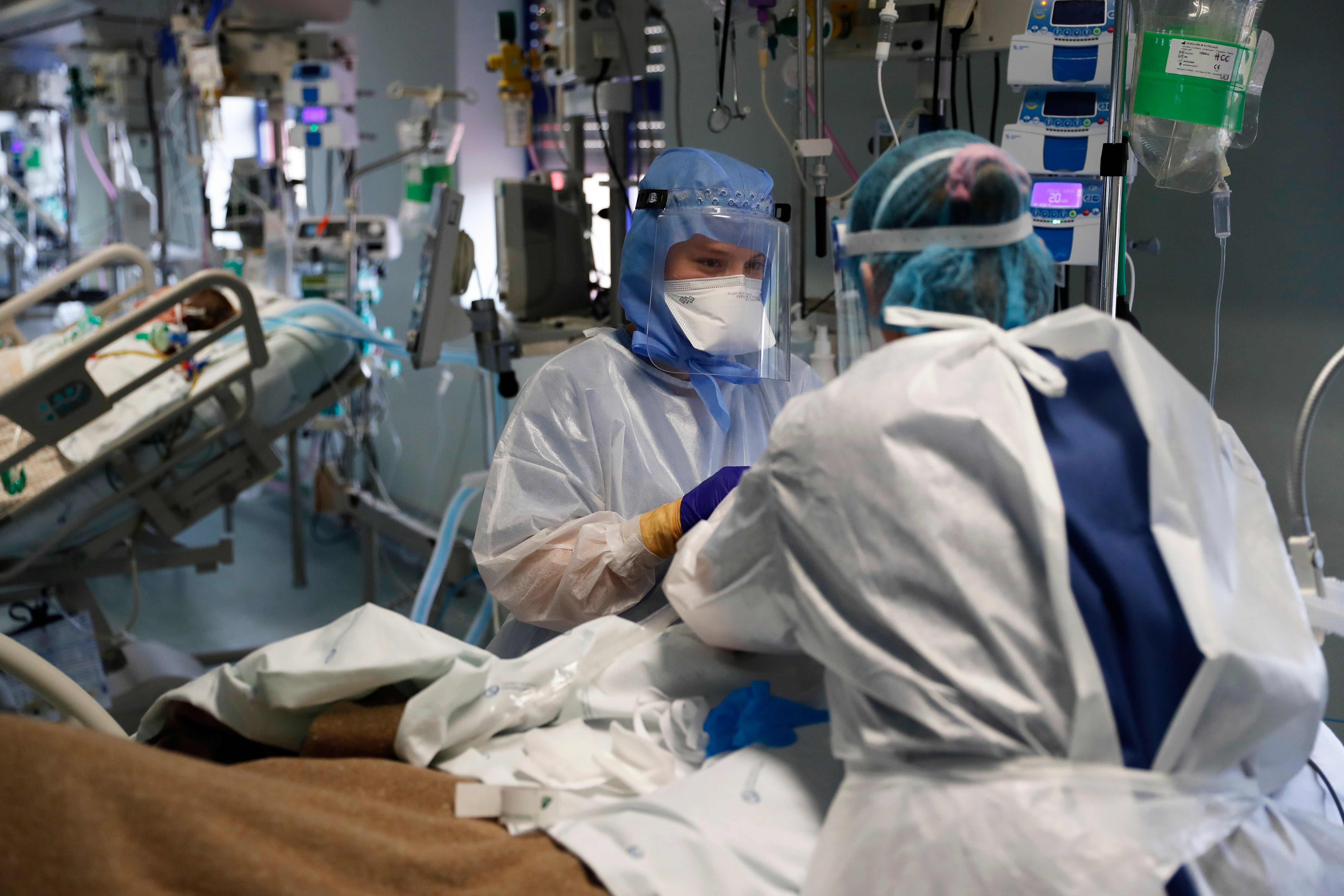Portugal's relief at falling COVID-19 cases tempered by fear
Dr. Nuno Germano had a nagging fear when Portugal’s January surge of COVID-19 cases threatened to overwhelm his intensive care unit at Lisbon’s Curry Cabral Hospital: he was afraid he wouldn't be able to care for his patients

Dr. Nuno Germano had a nagging fear when Portugal’s January surge of COVID-19 cases threatened to overwhelm the public health system, forcing his intensive care unit at Lisbon’s Curry Cabral Hospital to double its number of beds in a week.
“I was afraid I wouldn’t be able to care for the patients,” he says.
After Portugal figured for about two weeks last month as the world’s worst-hit country by size of population, anxiety over the recent pandemic peak has eased slightly.
The number of COVID-19 patients in hospital and in intensive care fell Thursday for the third straight day. The health ministry reported the fewest hospitalizations since Jan. 20 and the fewest patients in ICUs for almost two weeks.
But Portugal’s seven-day average of daily deaths remained the world’s highest, at 2.05 per 100,000 people, according to Johns Hopkins University.
Experts reckon the surge peaked near the end of last month. But Germano isn’t expecting any immediate relief at the intensive care unit he heads, where 25 patients are in care.
“We’re still expecting cases to rise,” he said Thursday, at the end of a 24-hour shift. “There’s a time lag of about one or two weeks between the start of a drop in the number of cases and a reduction of patients in intensive care.”
On top of that, not only has his unit been receiving more patients, but they are patients who are more severely ill than in earlier phases of the pandemic.
The labored breathing of his patients, the multiple oxygen tubes and beeping machines are testimony to that.
Dr. Fernando Maltez, one of the country’s leading infectious disease experts who works at the Curry Cabral, is encouraged that Portugal appears to be on the right path. But he says the threat from COVID-19 variants hasn’t diminished.
“The drop (in numbers) doesn’t mean our problems are over,” he said.
Since the pandemic erupted, the country of about 10 million has officially recorded just over 778,000 cases and close to 15,000 deaths.
___
Barry Hatton in Lisbon contributed to this report.
___
Follow AP coverage of the coronavirus pandemic at:
https://apnews.com/hub/coronavirus-pandemic
https://apnews.com/hub/coronavirus-vaccine
https://apnews.com/UnderstandingtheOutbreak